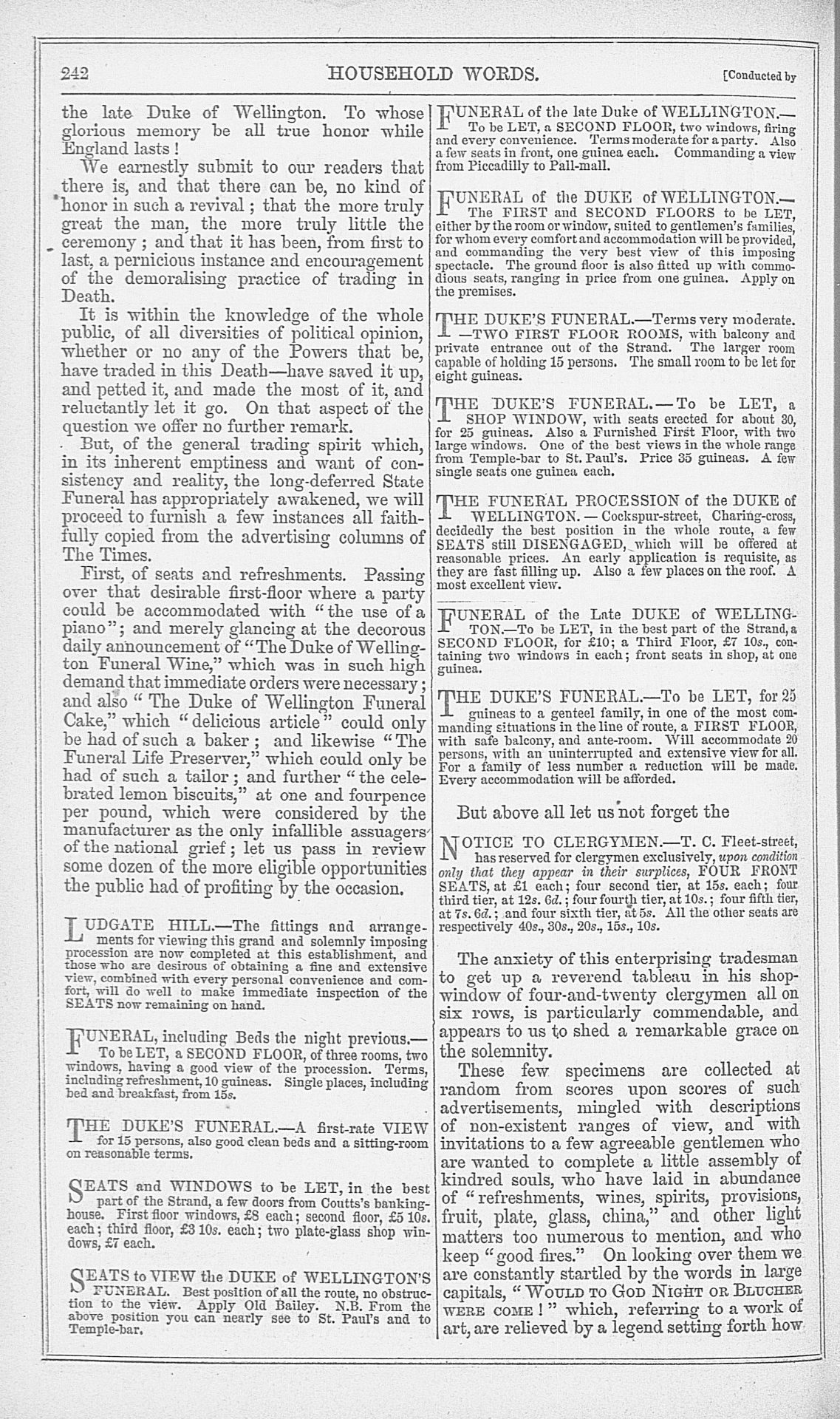James Mussell is Associate Professor at the University of Leeds. He is the author of Science, Time, and Space in the Late Nineteenth-Century Periodical Press (2007) and The Nineteenth-Century Press in the Digital Age (2012). He was one of the editors of the Nineteenth-Century Serials Edition (2008), W.T. Stead: Newspaper Revolutionary (2012), and A Pioneer of Connection: Recovering the Life and Work of Oliver Lodge (2020)
My Research

Abstract
Trading in Death: Periodicals, Seriality, Ephemerality
›Trading in Death‹ was an article published by Charles Dickens in Household Words in which he complains about those profitting from the recent death of Wellington. The article deplores the ›system of barbarous show and expense‹ that ›erected itself above the grave‹, not because of the disrepect shown to the dead but what it brought out in the living. However, what interests me about the article is not Dickens’s attack on the transformation of memorial into marketplace but his decision to reprint specimens of such profiteering in Household Words. Linked to the moment, these advertisements were themselves ephemeral but printed in daily and weekly newspapers they were also part of publications that were ephemeral too. By reprinting them in Household Words, however, Dickens both reconstituted them as a genre – they became instances of a type – and attempted to preserve them for the future. Yet he did so reprinting them in his own weekly magazine, itself locked into serial rhythms that necessitated ephemerality.
My paper uses ›Trading in Death‹ to consider the periodical’s close relationship with the ephemeral. I examine the necessity of ephemerality: the genre’s connection with the passing moment and the way that passing is built into periodical process. I also consider the way that ephemerality is resisted, whether through repetition (keeping things present), reprinting (multiplication as memory), or rebinding and reformatting (the book as memorial). There is a clear link between the ephemeral and the market, but my argument is that there is also something pleasurable about time passing. Part of the appeal of serial media is that they document a moment even as they permit it to pass away. The methodological challenge for those working with such media is to regonise this temporal economy. Periodicals are hybrid texts that institute a technology of forgetting even as they embody an attempt to remember.
Recent Publications
›Confused and Ill-Arranged: Reading Miscellaneity with Enquire Within‹, Victorian Periodicals Review, 53 (2020), 496-519
›Night Work or Night Play: Periodicals, Archives, and Poole’s Index‹, Media (B)Orders Between Periodicals and Books. Miscellaneity and Classification in Nineteenth Century Magazines and Literature, Pfennig Magazin zur Journalliteratur, 4 (2019), 34-43.
›»Seeking Nothing and Finding It«: Moving On and Staying Put in Mugby Junction‹, Replication in the Long Nineteenth Century: Re-makings and Reproductions, edited by Linda Hughes and Julie Codell (Edinburgh: Edinburgh University Press, 2018), pp. 231-247.

